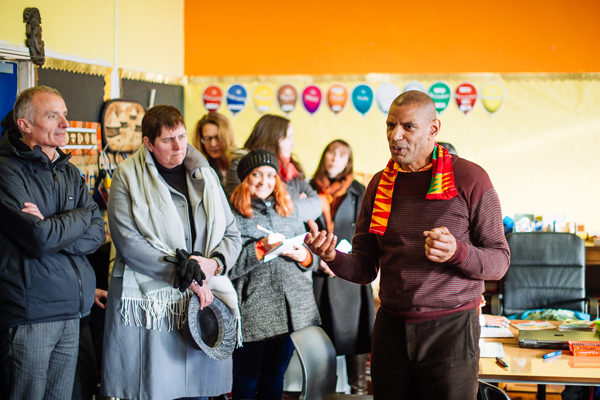Sam Tarff, CEO of Yorkshire-based social investor Key Fund, explores what a social enterprise really is, and the benefits to supporting social businesses.
The State of Social Enterprise Survey 2015, which was launched at The RSA in September revealed 'there are 70,000 social enterprises in the UK, contributing £24 billion to the economy and employing nearly a million people'.
But for many, ‘social enterprise’ provokes a frown, and a flurry of questions.
At the Key Fund, our research in the past that shows confusion persists around what social enterprise is. Although two thirds of us support the idea, only around 21% knew what social enterprises actually were.
Put simply, it’s about buying or using services from businesses that make a positive difference – on our community or on the environment. Social enterprises reinvest their profits into furthering their social mission. They have to have good business models to be financially sustainable, so they don’t rely on grants or charity.
Social enterprises tend to tackle challenges affecting the communities in which they are formed. However, the ‘missions’ can vary widely, from environmental benefit, healthcare for specific demographics, youth clubs for teenagers etc. Most social enterprises aim to help with employment by either providing support services to people that are furthest from the job market, or simply creating or safeguarding jobs in the local area.
Key Fund is itself a social enterprise. We began in 1999 - three years after the movie The Fully Monty told the story of six unemployed steelworkers who were forced to form a male striptease act to make some money.
Our Northern roots originated in Sheffield. Primarily, we worked in South Yorkshire to help revitalise northern communities decimated by the collapse of the coal and steel industries by launching a pioneering grant and loan fund – one of the first in the country – to support the development of social enterprises.
15 years on, Key Fund invest in more social enterprises than anyone else in the UK. We’re different because we only invest in people who have been turned down by mainstream finance; around 80% of whom operate in areas of multiple disadvantage. We’re about breaking down barriers to finance.
Social enterprise is not new, but they have a tendency to grow during times of economic difficulty. Since the 2008 global financial crash, public sector services in the UK have experienced unprecedented cuts. Between 2010 and 2015 local authority budgets have been cut by £18bn, with at least £9.5 billion more to come.
The UK may be the sixth wealthiest country in the developed world but it’s the only country in the G7 to have seen inequality grow in over a century. Social enterprise works in the space of that inequality, where there’s a cost to doing nothing, a cost to the tax payer, the state and society itself.
So, social enterprise makes money through trading ethically. They are autonomous, independent and sustainable; reinvesting profits back into their social mission. We’ve calculated for every £1 we invest creates an £8 wider return to that local community.
Social enterprises create local employment and local supply chains, which leads to more spending in the local economy. Services tailored to local needs are more effective. Engaging those on the edges - the disabled, young people not in employment or education, or the long-term unemployed - has huge, multiple social impact, from less anti-social behaviour and reliance on state benefits to diverting at-risk people from the criminal justice system. It all benefits society and saves the public purse.
Point being, it works.
A third of all small and medium sized businesses are now social enterprises. In terms of new business formation in the UK, social enterprise is where the action is. Innovative, heartfelt, bolstering our communities.
People want to shop locally, ethically and socially. And more people than ever want meaningful work, embedded with strong values and ethics.
Perhaps you’re one of them?
Related articles
-
The role of community businesses in unlocking creative solutions
Josie Warden
Community businesses are particularly well placed to unlock creativity in our neighbourhoods. What can we learn from what they do?
-
Uniting behind the mission: reconciling managers, shareholders and society
Tony Greenham
The interests of managers, shareholders and society can often come into conflict. Uniting behind a clearly articulated mission can help reconcile these conflicts, but we still need to have robust measurements to hold corporate executives to account.
-
5 lessons in leadership from community business
Josie Warden
As our Community Business Leaders Programme opens for new applications, we reflect on what we can learn about leadership from these organisations.




Be the first to write a comment
Comments
Please login to post a comment or reply
Don't have an account? Click here to register.